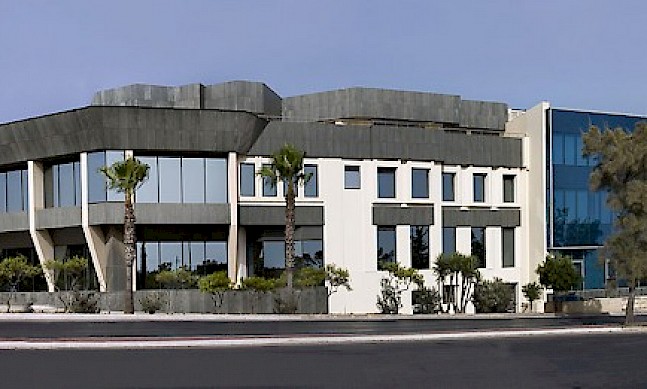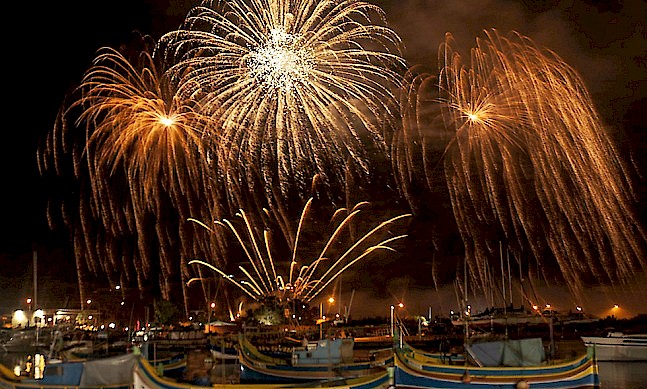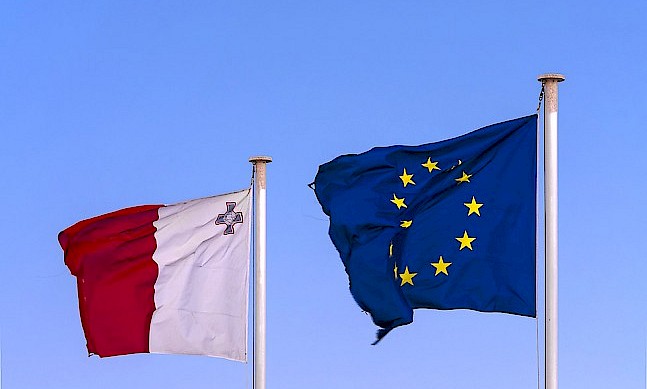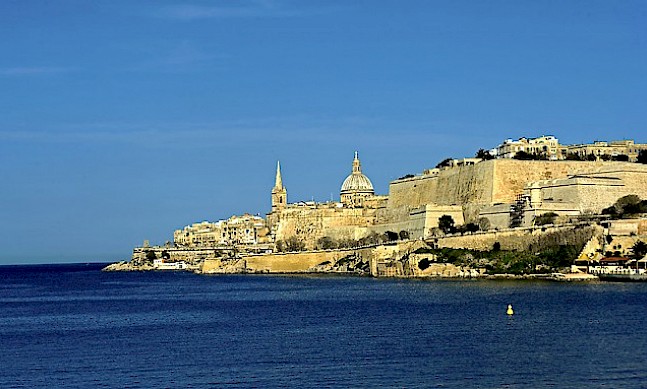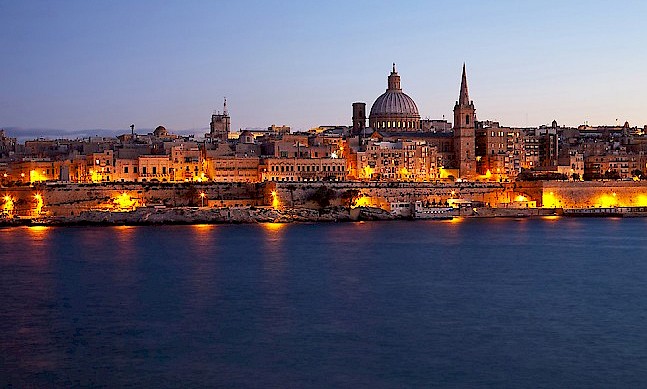
FinanceMalta is Malta’s national promotional body for the financial services industry and works to create business and networking opportunities for firms operating in the sector. Kenneth Farrugia, its chairman, spoke to The Report Company about what has led to this Mediterranean island nation’s success as a finance centre, and where the opportunities lie for further growth.
The Report Company: Despite the financial crisis, Malta’s financial services sector has performed very well. What has underpinned this growth?
Kenneth Farrugia: Although the promotion of Malta as an international financial services jurisdiction was initiated in mid-2007, and this coincided with the culmination of the financial crisis in the years thereafter, Malta’s financial services industry has managed to register year on year growth and today contributes over 12 percent of GDP and employs 10,000 workers. It is my view that the key driver of the growth that we have experienced so far in a relatively short period of time is all about the value proposition that has been carefully developed and articulated over this period. In fact, in assessing the critical factors that attract international business to a financial centre, Malta clearly emerges as a compelling proposition when compared with other European financial centres. This is primarily driven by the presence of key competitive drivers such as the presence of economic and political stability, a sound operational infrastructure, the accessibility and standing of the regulatory body and the presence of a comprehensive legal and regulatory framework.
On the economic front, Malta was not completely isolated from the economic challenges that have hit Europe, but when compared with other EU member states, we were the last to go into a brief recession, and were the first to come out of it emerging relatively unscathed with Malta’s banking sector remaining highly robust in the process. It is ironic though that when one considers our geographical position right in the middle of the Euro-Med region, and the stark reality that Malta was, and to some degree still is, surrounded by countries facing both economic and political instability, the results achieved so far are highly commendable. This clearly allowed the financial services industry to focus on growing the business as against attending to the challenges that this political and economic environment has created.
At the macroeconomic level, Malta’s economic growth has been driven by the creation of new jobs, low unemployment and the continuous improvement in other economic indicators.
Other growth drivers are reflected in the presence of a comprehensive legal and regulatory framework, an accessible regulator, the presence of a sound operational infrastructure which brought about a fast developing financial ecosystem. Malta’s value proposition is also supported by the presence of a professional accounting and legal service sector and equally important an ICT infrastructure which strongly supports this important industry.
As a result of these developments, Malta has built a number of interesting clusters in areas such as asset management, fund administration and captive insurance amongst others which have collectively strengthened the international credibility to the jurisdiction.
“We are nimble because we are small, so things can be organised much faster than in other jurisdictions.”Post This
TRC: What were the main outcomes of the recent FinanceMalta annual conference?
KF: The agenda of the conference was moulded on the actual theme of the conference: ‘Building on Our Success, Reaching New Horizons’, which in essence is a realistic reflection of our thrusts to further develop and build on what we have achieved so far, and at the same time implement and take forward new initiatives leading to the opening up of new markets and new financial sectors going forward. Translating this in practical terms, the conference revolved around sustaining the key achievements of the industry through continued innovation and at the same time reaching out to new horizons, meaning new markets which go beyond European borders. In fact, we have already embarked on a programme of initiatives reaching out to the US (New York) and the Gulf (Dubai and neighbouring countries such as Oman and Qatar) in order to present Malta’s proposition in these relatively new markets.
Having said the above, reaching new horizons is not only about a geographic push; it is also about reaching new financial sectors where we feel Malta has an important role to play. In fact, during the annual conference, which was attended by around 350 delegates, we addressed a number of interesting areas of business where Malta is experiencing growth such as international pensions and securitisation vehicles. During the event we also touched on other potential areas such as Islamic finance. These are new areas of business that will further strengthen our overall value proposition and continue to contribute to the diversity of the financial industry.
TRC: Where do you see opportunities for further growth?
KF: We are continuing to see sustained growth in the asset management space, as evidenced by the strong conduit of new business at the product level in terms of new investment schemes being licenced in Malta as well as the onset of new asset servicing organisations. In effect, last year, just under 120 new funds were licensed and 23 new investment services licences were issued by the Malta Financial Services Authority.
In the insurance sector, we did not experience growth in numbers but the activity within existing operations has experienced a marked increase. In fact, gross premiums written have reached around €2.8 billion, and predominantly those premiums cover foreign risks, clearly confirming that Malta is becoming a truly international centre with operators increasingly servicing international business.
Likewise, in the fund administration space, we did not see a growth in administrators, but their book of business has continued to grow because today fund administrators based in Malta are not only servicing Malta domiciled funds but increasingly are servicing funds based outside of Malta in both other EU and non-EU jurisdictions.
The industry is also experiencing growth in relatively new sectors. Pension assets, for example, have exceeded the €2 billion mark and this is a new sector which only started gaining traction around three years ago. There are also institutions that fall under the financial institutions act, which are not banks but that provide strands of banking services such as e-money transmissions or payment processing. The number of these operators has increased by just under 50 percent in two years. All these developments are shaping the financial ecosystem of the industry by way of the sheer diversity of the growth that the industry is experiencing.
“Malta has built some interesting clusters in areas such as asset management, administration and captive insurance. All of this adds increased credibility to the jurisdiction.”Post This
TRC: What advantages does Malta’s regulatory framework offer to potential investors?
KF: I do not think that we have a competitive advantage insofar as our regulatory framework is concerned. Today, regulations are driven by EU directives, which are the same in all EU member states. The ability for a country to be differentiated by its interpretation of one clause or another in a directive does not apply anymore.
Competitiveness is today driven by product innovation, all within a relatively homogenised regulatory framework. There are of course other competitive factors such as the time to market. To take an example, when the AIFM directive was announced, Malta’s regulator started working in earnest to ensure that Malta would achieve the planned transposition timetable. In fact, Malta was one of the first countries in Europe to transpose the directive into national legislation. Up to the beginning of last year, around 50 percent of all EU member states had still not transposed this directive.
Enabling the first-mover advantage by being efficient in transposing directives is inherently a competitive advantage. In the process, it was equally important for the national regulator to ensure that there was a clear understanding by all stakeholders of the implications of the regulation, as well as the opportunities that emerge from this framework.
TRC: Does Malta have the requisite human resources to meet the demands of the growing financial services sector?
KF: The evolution of the industry has definitely brought about increasing demands for non-traditional skill sets. In the process, the regulator, the industry and private education service providers are all playing a pivotal role in introducing training programs, diplomas and degrees pertinent to the requirements of the various industry sectors.
Successive governments have continued to invest heavily in education. The faculty of economics, management and accountancy (FEMA) is in effect one of the largest faculties at the University of Malta, with a student population totalling some 1,800. Three traditional departments – economics, management and accountancy – formed the faculty in its first years (hence the name), with the departments of banking and finance, insurance, marketing and public policy being established soon afterwards. FEMA offers full-time and part-time courses.
Apart from the initiatives to ensure labour sufficiency, Malta, as an EU member state, is equally well positioned to import the necessary skilled labour.
TRC: In which markets has Malta been able to build its brand and where is there room for improvement?
KF: If you look at the existing business, it’s quite diversified, but skewed towards the UK. The UK is a legacy market for us, having been under the British for quite a number of years, and Malta is known within the UK market. I think we’ve built a good reputation insofar as existing business is concerned, and we have organised quite a number of initiatives in that market. Italy as well, due to the geographic proximity, is an important market for us, as is the Swiss market. Apart from strengthening initiatives in the key European markets, we have a strong programme of initiatives covering markets particularly in the US, the Gulf, Hong Kong and China which will see us showcase Malta’s value proposition as a financial centre in Europe.
“New regulatory requirements are frequently seen by the industry as presenting additional burden. However, when assessing the impact of new regulations, they invariably equally present new opportunities.”Post This
TRC: What opportunities do you see in the Islamic finance market?
KF: Our geographic positioning positions Malta as an ideal jurisdiction for the issuance of Islamic sukuks, amongst others. The formal guidelines issued by the MFSA give advice to fund promoters on how the current funds regime, regulated by the investment services act, applies to funds established under Sharia rules, and clarifies a number of related issues for the benefit of fund promoters.
While Malta has a reputation as a jurisdiction for smaller financial services companies and start-ups, the fund sector is maturing and attracting sophisticated asset management activities. Funds which comply with Islamic law can be set up either as undertakings for collective investment in transferable securities (UCITS), as alternative investment funds (AIFs) or as professional investor funds (PIFs), which are non-retail funds targeting the more experienced investor. On the other hand, Ijarah funds, commodity funds and Murabaha funds, which generally invest in non-conventional asset classes, may only be licensed in Malta as PIFs, whilst Sharia-compliant equity funds can be set up as Maltese UCITS schemes or as PIFs.
Malta is equally positioning itself to tap into the international sukuk market to attract foreign direct investment. Sukuk and bonds are internationally recognised as important project finance vehicles for companies, institutions and governments, as they provide financial protection for portfolios with lower risk tools and enable investors to diversify their investments. While traditional bonds represent pure debt obligations from the issuer to the investor or bondholders, the sukuk represents ownership of well-defined asset.
Malta is attracting increasing numbers of investors and high net-worth-individuals from the Middle East and North Africa, enticed by the country’s geographical proximity, EU membership and, more importantly, its excellent wealth management, estate planning and corporate finance offering. Where a Malta SPV is used in an Islamic finance transaction, it can be particularly useful when combined with a Malta trust holding the shares in the SPV. Malta trusts are effective and reliable, and can offer customised solutions for wealth management as well as succession planning. In the trust deed, settlors can define how assets are distributed to the beneficiaries so that they are in accordance with Islamic rules of succession. SPVs and trusts are regularly used for Islamic finance transactions through Malta.
As the island develops its Islamic finance infrastructure and expertise further, other vehicles of Malta’s International Finance Centre can be adapted to the Islamic moral order that governs finance.
TRC: What are your main objectives for the next 12 months?
KF: There is in my view ample space to attract further business in the existing sectors. Malta is equally attractive insofar as new sectors are concerned. On the capital markets side, I expect the introduction of securitisation vehicles, the development of the international pensions market. Regulations are seen by the industry as a burden, but when you understand them then they do represent opportunities driven by what we term innovation through regulation.




